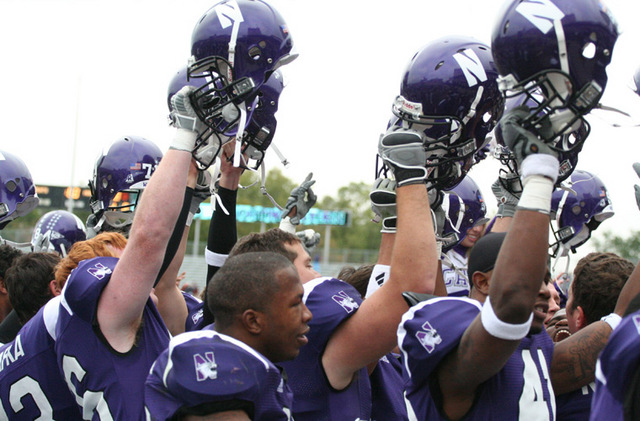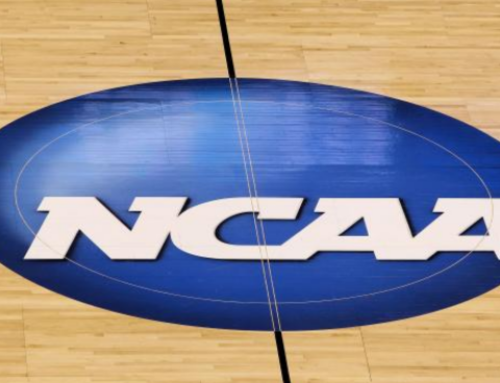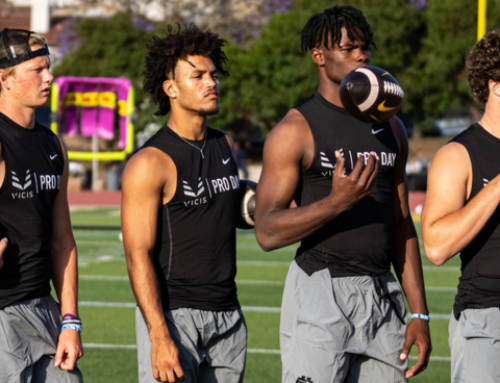Character Counts: Questions Coaches Ask to Evaluate Integrity

The most underrated aspect of the recruiting process is character. So says college football recruiting expert Bruce Feldman, who adds, “Character counts, so you need to prepare like you’re going into a job interview, because, well, you are.”
For many schools, including several with nationally ranked football programs, character and academic performance take precedence over football talent. Case in point: Northwestern University, owners of the highest Academic Progress Rate (APR) in college football, places great weight on character when analyzing prospective recruits. (APR measures the success of a college team in advancing student-athletes toward graduation.)
In an exclusive interview with Feldman, Northwestern head coach Pat Fitzgerald said, “[Our recruits] understand the value of the degree, and they want the degree. They’re not just going to school to play football. We look for young men who understand that both can be achieved, not one in spite of the other.”
Ranked 12th in U. S. News & World Report‘s Best Colleges 2011, Northwestern is one of the country’s premier academic institutions. But despite three straight bowl appearance, it’s not normally counted among traditional football powerhouses at the Division I level. Neither was Stanford University until their recent ascent to the top of the college football ranks after a dominant 2010 season.
The point is that you don’t have to be a four- or five-star recruit to play football at a major college. Says Fitzgerald, “We’ve had a lot of guys who weren’t five-star kids that are still playing in the NFL.” [Editor’s note: D-linemen Luis Castillo and Barry Cofield are among them.]
Rather than fret over a recruit’s rank, Fitzgerald and his staff use the following questions to evaluate a high school athlete’s social and football character:
- Does this young man love all aspects of football?
- Does he respect the game?
- Is he a grinder?
- Does he love watching tape?
- Is he great in the weight room?
- What kind of leadership qualities does he have?
Summer is the ideal time to assess your character—and to set a course of action for the upcoming school year that will help you earn a college scholarship. Margaret Akerstrom, athletic director for academic services at Northwestern, suggests starting by setting academic goals for the fall semester and using a daily planner to manage your off-season activities. She says, “Remember, good grades and solid play on the field go hand-in-hand for college admission. The motivation is, if you want to have the door open to any school that you want to go to, you have to focus on your academics every day.”
Source: espn.com
Photo: chicagonow.com
RECOMMENDED FOR YOU
MOST POPULAR
Character Counts: Questions Coaches Ask to Evaluate Integrity

The most underrated aspect of the recruiting process is character. So says college football recruiting expert Bruce Feldman, who adds, “Character counts, so you need to prepare like you’re going into a job interview, because, well, you are.”
For many schools, including several with nationally ranked football programs, character and academic performance take precedence over football talent. Case in point: Northwestern University, owners of the highest Academic Progress Rate (APR) in college football, places great weight on character when analyzing prospective recruits. (APR measures the success of a college team in advancing student-athletes toward graduation.)
In an exclusive interview with Feldman, Northwestern head coach Pat Fitzgerald said, “[Our recruits] understand the value of the degree, and they want the degree. They’re not just going to school to play football. We look for young men who understand that both can be achieved, not one in spite of the other.”
Ranked 12th in U. S. News & World Report‘s Best Colleges 2011, Northwestern is one of the country’s premier academic institutions. But despite three straight bowl appearance, it’s not normally counted among traditional football powerhouses at the Division I level. Neither was Stanford University until their recent ascent to the top of the college football ranks after a dominant 2010 season.
The point is that you don’t have to be a four- or five-star recruit to play football at a major college. Says Fitzgerald, “We’ve had a lot of guys who weren’t five-star kids that are still playing in the NFL.” [Editor’s note: D-linemen Luis Castillo and Barry Cofield are among them.]
Rather than fret over a recruit’s rank, Fitzgerald and his staff use the following questions to evaluate a high school athlete’s social and football character:
- Does this young man love all aspects of football?
- Does he respect the game?
- Is he a grinder?
- Does he love watching tape?
- Is he great in the weight room?
- What kind of leadership qualities does he have?
Summer is the ideal time to assess your character—and to set a course of action for the upcoming school year that will help you earn a college scholarship. Margaret Akerstrom, athletic director for academic services at Northwestern, suggests starting by setting academic goals for the fall semester and using a daily planner to manage your off-season activities. She says, “Remember, good grades and solid play on the field go hand-in-hand for college admission. The motivation is, if you want to have the door open to any school that you want to go to, you have to focus on your academics every day.”
Source: espn.com
Photo: chicagonow.com
RECOMMENDED FOR YOU
Create A Free Recruiting Profile Today!
CaptainU helps athletes & parents not only be proactive but also to manage and take control of their entire recruiting journey.












